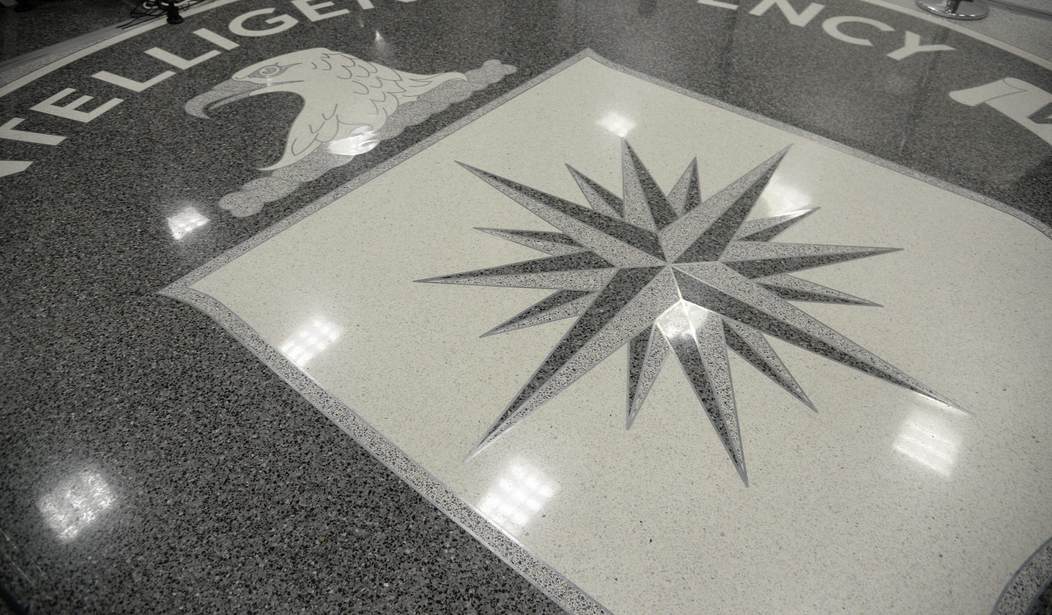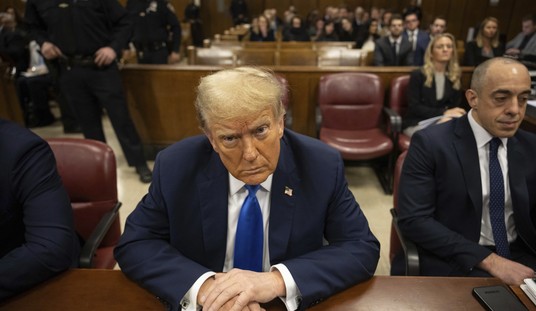This story, which broke on Nov. 2, got mighty little attention from the national media. I wonder why:
In 2013, hundreds of CIA officers — many working nonstop for weeks — scrambled to contain a disaster of global proportions: a compromise of the agency’s internet-based covert communications system used to interact with its informants in dark corners around the world. Teams of CIA experts worked feverishly to take down and reconfigure the websites secretly used for these communications; others managed operations to quickly spirit assets to safety and oversaw other forms of triage.
“When this was going on, it was all that mattered,” said one former intelligence community official. The situation was “catastrophic,” said another former senior intelligence official.
Now, who was president back then?
From around 2009 to 2013, the U.S. intelligence community experienced crippling intelligence failures related to the secret internet-based communications system, a key means for remote messaging between CIA officers and their sources on the ground worldwide. The previously unreported global problem originated in Iran and spiderwebbed to other countries, and was left unrepaired — despite warnings about what was happening — until more than two dozen sources died in China in 2011 and 2012 as a result, according to 11 former intelligence and national security officials.
The disaster ensnared every corner of the national security bureaucracy — from multiple intelligence agencies, congressional intelligence committees and independent contractors to internal government watchdogs — forcing a slow-moving, complex government machine to grapple with the deadly dangers of emerging technologies.
This is simply stunning. A rollup of networks across the world — an event that began in Iran, where the Obama administration would soon enough be negotiating its much sought-after “nuclear deal framework,” and ended with numerous deaths is the kind of thing of which intelligence nightmares and national-security disasters are made. One’s first instinct is to look back and see who was CIA director during that period: Leon Panetta (Feb. 2009-June 2011); Michael Morell (acting director, July-Sept. 2011); David Petraeus (Sept. 2011-Nov. 2012); Morell again (acting, Nov. 2012-March 2013); and finally John Brennan, who served out the remainder of the Obama administration.
In other words, a lot of churn during what we now know was a tumultuous time. Oddly enough, one important national-security position experienced exactly zero churn during these years, that of Homeland Security adviser. Which chair was occupied by John Brennan, until he stepped in at the CIA.
A former senior intelligence official with direct knowledge of the compromise said it had global implications for the CIA. “You start thinking twice about people, from China to Russia to Iran to North Korea,” said the former official. The CIA was worried about its network “totally unwinding worldwide.”
Yahoo News’ reporting on this global communications failure is based on conversations with eleven former U.S. intelligence and government officials directly familiar with the matter who requested anonymity to discuss sensitive operations. Multiple former intelligence officials said that the damage from the potential global compromise was serious — even catastrophic — and will persist for years.
More than just a question of a single failure, the fiasco illustrates a breakdown that was never properly addressed. The government’s inability to address the communication system’s insecurities until after sources were rolled up in China was disastrous. “We’re still dealing with the fallout,” said one former national security official. “Dozens of people around the world were killed because of this.”
News of the disaster was reported back in August, but the details were largely confined to China:
It was considered one of the CIA’s worst failures in decades: Over a two-year period starting in late 2010, Chinese authorities systematically dismantled the agency’s network of agents across the country, executing dozens of suspected U.S. spies. But since then, a question has loomed over the entire debacle. How were the Chinese able to roll up the network?
Now, nearly eight years later, it appears that the agency botched the communication system it used to interact with its sources, according to five current and former intelligence officials. The CIA had imported the system from its Middle East operations, where the online environment was considerably less hazardous, and apparently underestimated China’s ability to penetrate it.
“The attitude was that we’ve got this, we’re untouchable,” said one of the officials who, like the others, declined to be named discussing sensitive information. The former official described the attitude of those in the agency who worked on China at the time as “invincible.”
Other factors played a role as well, including China’s alleged recruitment of former CIA officer Jerry Chun Shing Lee around the same time. Federal prosecutors indicted Lee earlier this year in connection with the affair. But the penetration of the communication system seems to account for the speed and accuracy with which Chinese authorities moved against the CIA’s China-based assets.
“You could tell the Chinese weren’t guessing. The Ministry of State Security [which handles both foreign intelligence and domestic security] were always pulling in the right people,” one of the officials said. “When things started going bad, they went bad fast.”
The former officials also said the real number of CIA assets and those in their orbit executed by China during the two-year period was around 30, though some sources spoke of higher figures. The New York Times, which first reported the story last year, put the number at “more than a dozen.” All the CIA assets detained by Chinese intelligence around this time were eventually killed, the former officials said.
As I’ve been saying since the whole silly “Russian collusion” fantasy was concocted to explain away Hillary Clinton’s loss in the 2016 presidential election, Russia is our adversary, but China is our enemy. (So is Iran, and has been since the Carter administration.) The Chinese have repeatedly hacked their way into government networks, planted spies in the agencies and on the staffs of prominent Democrats, and have generally used their money and influence to gain access to American officials (beginning with the Clintons) and educational institutions. The American media is obsessed with the Russians’ piddling efforts to interfere with the electoral process; meanwhile, the Chinese and the Iranians are stealing us blind.
According to the Yahoo News report, the problem began with — what else? — the Iranian nuclear program (something, by the way, the Bush administration should have dealt with earlier).
One of the largest intelligence failures of the past decade started in Iran in 2009, when the Obama administration announced the discovery of a secret Iranian underground enrichment facility — part of Iran’s headlong drive for nuclear weapons. Angered about the breach, the Iranians went on a mole hunt, looking for foreign spies, said one former senior intelligence official.
The mole hunt wasn’t hard, in large part, because the communications system the CIA was using to communicate with agents was flawed. Former U.S. officials said the internet-based platform, which was first used in war zones in the Middle East, was not built to withstand the sophisticated counterintelligence efforts of a state actor like China or Iran. “It was never meant to be used long term for people to talk to sources,” said one former official. “The issue was that it was working well for too long, with too many people. But it was an elementary system.”
By 2010, however, it appears that Iran had begun to identify CIA agents. And by 2011, Iranian authorities dismantled a CIA spy network in that country, said seven former U.S. intelligence officials. (Indeed, in May 2011, Iranian intelligence officials announced publicly that they had broken up a ring of 30 CIA spies; U.S. officials later confirmed the breach to ABC News, which also reported on a potential compromise to the communications system.)
Iran executed some of the CIA informants and imprisoned others in an intelligence setback that one of the former officials described as “incredibly damaging…” A lack of proper vetting of sources may have led to the CIA inadvertently running a double agent, said one former senior official — a consequence of the CIA’s pressing need at the time to develop highly placed agents inside the Islamic Republic.
The fact is, networks get rolled up all the time, especially when the controlling agency becomes complacent, or goes to the well once too often. Communication methods must always be reassessed — especially when they seem to be working — and changed. But the Obama administration’s cavalier attitude toward security basics is nonetheless shocking, and evidence of the rank amateurism with which the Obamanauts approached foreign policy and national security.
The losses could have stopped there. But U.S. officials believe Iranian intelligence was then able to compromise the covert communications system. At the CIA, there was “shock and awe” about the simplicity of the technique the Iranians used to successfully compromise the system, said one former official.
The bottom line:
It’s not clear whether China and Iran cooperated, but the former officials said the communications systems used in both countries were similar. The two governments may have broken the system independently. But Iranian, Chinese and Russian officials were engaged in senior-level communications on cyber issues around this time, recalled one former senior intelligence official —interactions that were “very suspicious in hindsight.”
This story now provides us a framework for looking at the high rate of turnover at CIA during this critical period during the first Obama administration, and perhaps offers some clues for the frantic nature of Iran nuclear deal, and the desperation with which some former administration officials still cling to it. Besides Obama himself, the guy with the clearest view of the whole mess is Brennan, and wouldn’t it be interesting to get him before Congress to testify exactly just how and why things went so horribly wrong?
But that’s a can of worms almost nobody wants to open — not Brennan, nor the Agency, nor former Obama national-security types, and certainly not the media. And so the CIA no doubt has put a few more anonymous stars on the wall, honoring those agents who died in the bloodbath, and will have no public comment. Like doctors, intelligence agencies bury their mistakes. But when and if the true history of the Iran deal is written, it’s going to be even worse than we ever suspected.








Join the conversation as a VIP Member